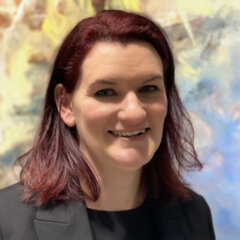On March 11, 2025, The Washington Post reported that the DC Office of the Inspector General found that crime scene technicians with the DC Department of Forensic Sciences (DFS) had falsified their arrival times to crime scenes nearly 700 times over a one-year period. Just as troubling as this misconduct was the DFS response: officials dismissed this fabrication of data on crime scene reports. According to the United States Attorney’s Office, DFS asserted it was not going to follow up on the allegations as they did not matter since it was irrelevant whether crime scene employees were lying on paperwork about the time of their arrival. Altering crime scene reports is not just an ethical lapse by individual crime scene technicians who are trusted to report honestly and accurately regarding physical and forensic evidence. This misconduct is reflective of a broader cultural problem within the DFS: a tolerance for cutting corners and a quality assurance and quality control (QA/QC) structure unable or unwilling to intervene.
This isn’t the first scandal to shake DFS. In 2021, the lab lost its national accreditation after credible evidence came to light that DFS had deliberately concealed information from its accrediting body, violated accreditation requirements and engaged in misrepresentation and fraudulent behavior. The decision to withdraw the accreditation of DFS was based on the findings of a March 18, 2021, audit conducted of the Firearms Evidence Unit of DFS by examiners retained by the United States Attorney’s Office for the District of Columbia and the Office of the Attorney General for the District of Columbia. The audit occurred after evidence that came to light in 2019 suggested that a firearms examiner within the DFS had falsified another examiner’s verification of his work, committed forgery, and engaged in unethical behavior. It was reported that this information was brought to the attention of the DFS management and instead of investigating the alleged misconduct, supervisors downplayed it in an attempt to hide it.
As investigations into DFS continued, more information came to light about the subjective, biased and opaque practices within DFS’s QA/QC program and how corrective action was handled. A former general counsel of the DFS informed investigators that during her tenure at DFS she felt pressure from the laboratory to soften or shape disciplinary documentation to avoid damaging employees’ ability to testify in court. The reason? A previous incident in which a DFS employee was found to have been dishonest in an internal investigation. When that finding of dishonesty was disclosed, prosecutors in turn would no longer sponsor that employee’s testimony, thereby effectively ending their ability to work at DFS. Following that incident, and the ramifications of the quality investigation, the former general counsel of DFS reported feeling pressured by management to manipulate the documentation of employee discipline to protect the laboratory’s workforce from the consequences of dishonesty findings.
In the courtroom, forensic evidence often carries an aura of reliability. Jurors trust it. Judges rely on it. Prosecutors build cases around it. But as countless exonerations have shown us, forensic science is only as reliable as the systems that support it—and without rigorous quality control, even the best-intentioned labs can produce devastatingly flawed resultsthat fail the people depending on the criminal legal system.
Studies conducted by the National Institute of Justice (NIJ) have revealed that the use of falsified or misleading forensic evidence is a contributing factor to wrongful convictions. Analyses of cases and forensic examinations sourced from the National Registry of Exonerations found that a shocking 635 out of 732 examined cases had errors related to forensic evidence. QA/QC systems are designed to catch errors, detect fraud, and guard against the bias that can creep in through pressure, sloppiness, or even unconscious assumptions. A strong QA/QC program ensures that lab practices, personnel, and procedures meet objective standards and that the conclusions they generate are scientifically valid and legally defensible.
Despite promises of reform and restructuring since its 2021 scandal, this latest misconduct with crime scene technicians shows that DFS still struggles with internal accountability. Falsifying data on a crime scene report isn’t a rogue technician issue. It’s a symptom of a continued broken QA/QC system—one that failed to detect, prevent, or even meaningfully address deceit within its own ranks. If quality assurance can’t catch basic data falsification, what else is slipping through the cracks?
This is not what independent, neutral forensic science should look like. When DFS excuses deceit as inconsequential, it signals that truth in documentation is optional—until the defense holds them accountable. If DFS can’t or won’t police its own staff, then the courts—and the defense bar—must take up that responsibility. Forensic evidence carries weight with juries. That weight should not be built on falsified reports and broken systems.
Need help scrutinizing forensic evidence in your case? At Brown, Goldstein & Levy, we have the tools and experience to challenge flawed forensic practices and protect your rights. Our criminal defense team has obtained acquittals, dismissals of charges, and declinations of prosecutions and won trials and appeals against the most powerful government in history. Our attorneys fight tirelessly on behalf of people across the Baltimore and Washington D.C. metropolitan areas who are facing a system that wants to silence them.
Jacqueline Cadman is widely regarded as one of the best criminal trial lawyers in the Washington D.C. and Baltimore metro areas. Throughout her career, Jacqui has tried hundreds of cases. She has mastered complex issues of forensics, psychology, and conducted intricate constitutional litigation. Jacqui is nationally recognized for her expertise in conducting deep investigations and for trying and winning the most time-intensive and difficult cases. She is a regular trainer nationwide on countless topics involving criminal law and trial advocacy. Reach out today to discuss how we can help.
